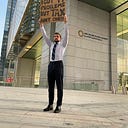HOW TO UNDERSTAND THE FAMILY OFFICES OF THE GCC
It is a universally acknowledged truth that no two family offices are the same, varying as they do by factors such as size, structure, outlook and investment strategies, among others.
It is possible however to discern a growth cycle in how family offices in the GCC were first formed, then began to establish more formal and professional structures, and subsequently (a more recent phenomenon) splintered to allow the next generation to take over.
Thanks to its oil resources the region is home to some of the wealthiest countries per capital across the globe, and its sovereign wealth funds are well known for their high profile investments in some of the biggest brands and global properties.
With new financial centers, such as Abu Dhabi’s ADGM, launching in the region, the Middle East continues to emerge as an increasingly important global center for wealth management.
While the family office landscape in the Middle East remains smaller than other regions despite the large amounts of wealth, there are signs that this is all changing post Covid19.
As regional economies adapt to this new business environment, GCC family businesses have had to face two realities: they must now play a more proactive role in the management of their portfolios and diversify their holdings across global rather than regional assets. Traditionally, family business owners had a more passive role as shareholders in operating companies. They did not take an active role in monitoring the performance of their portfolio companies or a hands-on approach towards value creation. In today’s new economic reality, family businesses are also realising that by concentrating their portfolio in one geography and illiquid asset classes, they are exposing themselves to a high level of concentration risk.
To generate sustainable returns, family businesses in the GCC must play a more active role in preserving and growing the value of their portfolios — especially when working with direct investments. Business owners must carefully monitor the performance of portfolio companies against annual targets and business plans.
Additionally, they must stay ahead of international market developments in areas where the portfolio companies operate, potentially leading to investments in adjacent and value-additive investments. Some are going a step further by creating a venture capital investment arm to identify such opportunities. Finally, they need to dedicate more attention to the selection and appointment of board members and management teams. In this respect, businesses often seek expert advice to enhance the holding-subsidiary governance agenda and identify suitable board member candidates.
The lower performance of the local, direct investments coupled with current geopolitical challenges have made many regional family businesses realise the importance of diversifying their assets across geographies and asset classes. However, diversifying these portfolios into more liquid, international assets is a major undertaking and requires a change in set-up, skill set and mode of operation. In other words, it is about transforming part of the family business into a family office — an entity that invests across geographies and asset classes, often with the assistance of External Fund Managers.
To do this, the family office must carefully assess how assets are managed, starting with the asset classes it wishes to invest in; equities, fixed income, private equity, real estate or money market instruments. It must decide how capital is deployed by adopting a strategic asset allocation and by setting the limits and constraints. The international portfolio should be subject to risk management purposes, for example to avoid concentration risks. These decisions are critical in setting the expected return of the international portfolio and the family office should be comfortable with this implied objective.
International companies and investors must realise, family businesses are a key component of the GCC economy and a good place to start your middle east journey.
#familyoffice #investment #capitalraise
